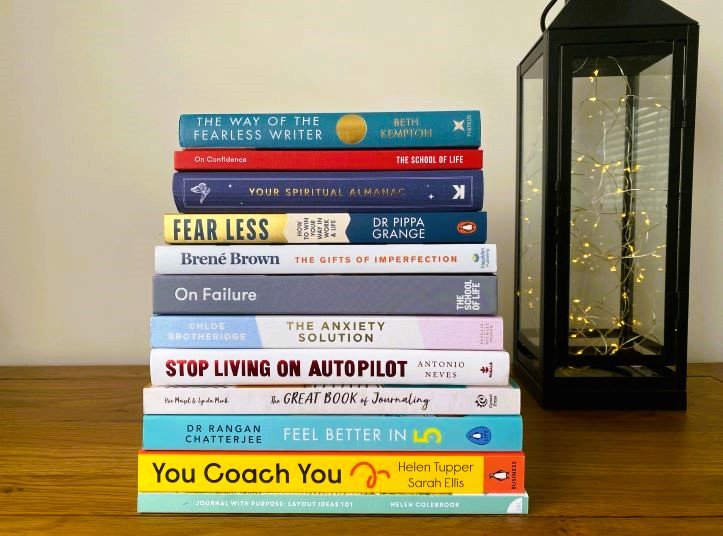
Understanding Self-Development
Self-development refers to a lifelong process of self-improvement through various methods, including education, mastery of new skills, and enhancing personal attributes. It focuses on setting and fulfilling personal goals that contribute to one’s growth and overall well-being. The importance of self-development cannot be understated; as individuals engage in this journey, they often experience significant transformations in their lives. The pursuit of self-development leads not only to an increase in self-awareness but also to a deeper understanding of one’s capabilities and aspirations.
One of the primary benefits of self-development is enhanced self-awareness. This heightened consciousness allows individuals to recognize their strengths and weaknesses, fostering a realistic self-image. With a clear understanding of personal abilities and limitations, one can make informed decisions regarding growth opportunities. Additionally, self-awareness often serves as a catalyst for improved interpersonal relationships, as it helps individuals communicate effectively and empathize with others.
Furthermore, the pursuit of self-development often results in improved skills. Engaging with structured learning materials, such as self-help books and educational resources, allows individuals to acquire new capabilities and refine existing ones. These improvements can translate into various facets of life, including career advancements, better health choices, and more fulfilling personal relationships. Improved skills not only boost self-confidence but also enable individuals to overcome challenges and navigate life’s complexities with greater ease.
Ultimately, self-development enhances overall life satisfaction. As individuals work towards their goals and witness positive changes, a sense of fulfillment emerges, contributing to a more resilient and optimistic outlook. This sense of achievement fuels the desire to continue learning and growing, reinforcing the cycle of self-development. By consciously seeking books that support this journey, individuals can effectively nurture their personal growth and transformation.
Identify Your Goals
In the journey of self-development, recognizing and articulating your individual goals is a crucial foundational step. Self-assessment enables you to discover specific areas where you aspire to improve, whether that involves enhancing emotional intelligence, increasing productivity, developing leadership skills, or achieving a better work-life balance. The clarity of your objectives will significantly influence the selection of books that align with your self-improvement ambitions.
To initiate this process, begin by engaging in self-reflection. Consider your strengths and weaknesses in various aspects of your personal and professional life. This might involve contemplating past experiences, seeking feedback from trusted peers, or even journaling about your thoughts and feelings. By doing so, you can pinpoint the attributes you wish to cultivate. For instance, if you find that you struggle with managing your time effectively, focusing on productivity books would be advantageous.
Once you have identified your main objectives, it is imperative to document these goals. Writing them down solidifies your intentions and provides you with a reference point throughout your reading journey. This practice not only serves as a reminder of what you are striving to achieve but also allows you to track your progress over time. You may find it beneficial to break down larger goals into smaller, manageable tasks that can be tackled through specific reading materials. This strategic approach helps in narrowing down your book choices and creating a tailored reading list that directly corresponds to your self-development aims.
Ultimately, having defined goals provides direction and purpose, ensuring that your time spent reading contributes meaningfully to your overall growth. As you explore various genres and subjects, keep your objectives in mind to make informed selections that resonate with the path you wish to follow.
Researching Book Options
Choosing the right books for self-development is a crucial step toward achieving personal growth and improvement. Effective research is a fundamental part of this process. One of the most accessible methods to begin your research is by utilizing online platforms. Websites like Goodreads and Amazon offer user-generated content, including ratings and reviews, giving you valuable insights into a book’s quality and effectiveness. Paying attention to both positive and negative reviews can provide a balanced viewpoint, helping you determine if a particular title aligns with your needs.
Another valuable approach is to consult bestseller lists. Publications like The New York Times and industry-specific platforms often highlight top-selling self-development books. These lists can serve as a starting point, focusing your attention on popular titles that have resonated with a broader audience. While popularity does not always guarantee quality, it frequently indicates that a book has made a meaningful impact on readers.
Exploring recommendations from trusted sources can also prove beneficial. Professionals in the personal development sphere often share their favorite titles, providing guidance based on their experience and expertise. Additionally, discussing book suggestions with friends, family, or members of a book club can yield surprising discoveries. These discussions can uncover titles you might not have encountered in your own searches, broadening your understanding of available resources.
Incorporating a variety of these research strategies not only enriches your list of potential self-development books but also aligns your choices with your specific goals. By gathering information from multiple sources—be it online reviews, bestseller lists, or the recommendations of trusted individuals—you can make informed decisions that enhance your journey toward self-improvement.
Choosing the Right Authors
When it comes to self-development literature, selecting the right authors can significantly impact the effectiveness of the material. Credibility is paramount; readers should prioritize authors with recognized qualifications and experience in their respective fields. For example, an author who holds advanced degrees or has practical experience in psychology, coaching, or personal development will likely provide insights that are both profound and reliable. Additionally, it is beneficial to consider whether the author is actively engaged in their field, as this can indicate they are aware of the latest trends and research.
Moreover, examining an author’s reputation within the self-development community can serve as an essential gauge of their credibility. Author interviews, conference appearances, and contributions to reputable journals can highlight their standing among peers. Online reviews and reader testimonials also play a critical role, as they offer a collective perspective on the author’s impact and relatability. The way an author is perceived can provide insight into their ability to connect with their audience, a crucial factor in self-help literature.
Equally important is an author’s writing style and approach to self-development. Each author brings a unique perspective that may resonate differently with individual readers. Some may favor a more anecdotal style, incorporating personal stories and experiences, while others might adopt a data-driven approach, focusing on strategies backed by research. Readers should consider what type of narrative resonates with them most. A varied approach to topic exploration can enhance one’s understanding and application of self-development principles.
In summary, evaluating an author’s qualifications, reputation, and writing style is fundamental in selecting self-development books that align with personal growth goals. By conducting thorough assessments, readers can engage with literature that not only informs but also inspires transformation.
Evaluating Book Summaries and Reviews
When embarking on a journey of self-development, selecting the right books can significantly influence your growth trajectory. To streamline this process, evaluating book summaries and reviews plays a critical role. A well-crafted book summary distills key themes and concepts, providing an insight into the author’s intentions and the core messages of the book. Readers should seek summaries that highlight major themes and applicable insights, which can aid in understanding how the book’s content aligns with their personal goals.
Another important aspect of evaluating book summaries is the analysis of the applicability of the concepts presented. Readers should consider whether the ideas put forth can be realistically implemented in their daily lives. For instance, a book that presents theories without practical applications may not serve the intended purpose of self-development. Look for summaries that outline actionable steps or practical advice that resonate with your personal experiences and aspirations.
In addition to summaries, the feedback from fellow readers can be an invaluable resource in making informed decisions. Reviews provide real-world insights into a book’s effectiveness, as they often include various perspectives about the book’s content, writing style, and overall impact on readers’ lives. When analyzing reviews, it is beneficial to consider a diverse range of opinions, as this can reveal both strengths and weaknesses. Pay special attention to reviews that discuss the transformation or growth the reader experienced as a result of the book, as these can offer a tangible gauge of effectiveness.
In summary, carefully evaluating book summaries and reviews can significantly enhance your ability to choose books that will enrich your self-development journey. By paying attention to key themes, practical applicability, and reader feedback, you can navigate the overwhelming number of options available and select the most beneficial literature for your personal growth.
Balancing Theory and Practicality
When selecting books for self-development, it is crucial to strike a balance between theoretical concepts and practical applications. Many self-help and personal growth titles offer rich insights and philosophical frameworks, but the true value lies in how these ideas can be implemented in everyday life. Thus, prospective readers should aim to choose books that not only educate the mind but also inspire actionable strategies that facilitate tangible growth.
Books that delve deeply into theory can provide invaluable knowledge and motivate readers to expand their understanding of various self-development topics. However, without practical guidance, these theories may remain abstract and unutilized. Therefore, seeking out authors who interweave theoretical discussions with real-world applications can enhance the overall reading experience. These books often include exercises, case studies, or personal anecdotes that elucidate complex concepts and encourage readers to apply the knowledge in a meaningful way.
In addition, it is beneficial to look for self-development books that provide structured frameworks or step-by-step guidance. Such resources allow readers to transform theoretical insights into actionable steps. For instance, a book discussing time management might share relevant theories on productivity while simultaneously providing readers with checklists, templates, or daily habits to integrate these theories into their routines. This duality of learning fosters both intellectual and practical growth, empowering readers to adopt new habits and refine their personal skills effectively.
Ultimately, those seeking growth through self-development literature should prioritize books that harmoniously combine theory with practical advice. By doing so, readers will cultivate a comprehensive understanding while translating knowledge into action, thereby enhancing their journey towards personal improvement.
Diversity in Perspectives
When curating a reading list for self-development, it is vital to prioritize diversity in perspectives. This encompasses a broad range of viewpoints, cultures, and methodologies present in self-development literature. Engaging with texts that reflect varying backgrounds and philosophies can greatly enrich one’s understanding of personal growth, opening doors to alternative ways of thinking and problem-solving.
Self-development is not a one-size-fits-all journey; different authors provide unique insights drawn from their experiences and cultural contexts. For instance, while Western self-help literature often emphasizes individualism and personal achievement, many Eastern philosophies promote collectivism and community engagement. By embracing a variety of authors— from emerging voices to established experts—readers can benefit from an expansive understanding of human behavior, motivation, and the very nature of self-improvement.
This multifaceted approach also encourages creative thinking. Encountering different styles of reasoning allows individuals to challenge their own preconceptions and biases, which can lead to innovative solutions to personal challenges. For example, engaging with methodologies rooted in psychology, spirituality, or even folklore can offer contrasting strategies for overcoming adversity, setting goals, or cultivating resilience. Such exposure can illuminate the complexities of self-development beyond simplistic narratives.
Additionally, diverse perspectives foster empathy and understanding, essential qualities for anyone on a self-improvement path. By reading about struggles and triumphs from various cultures, individuals can better appreciate the shared human experience. This can also inspire collaboration with others, emphasizing that transformation is often a collective process. Ultimately, incorporating a wide range of viewpoints in self-development literature not only enriches the reading experience but also equips readers with the tools necessary to navigate their own journeys with a well-rounded approach.
Setting a Reading Routine
Establishing a reading routine is essential for anyone committed to self-development. It not only enhances one’s knowledge but also fosters personal growth by encouraging continuous learning. The first step in this journey is effective time management. Identifying specific times during the week dedicated solely to reading can significantly boost consistency. Consider incorporating reading into your daily schedule, whether it be in the morning, during lunch breaks, or before bed. This will ensure that reading becomes a regular part of your day.
Furthermore, creating a conducive environment that promotes focus and relaxation is a vital aspect of developing a reading routine. Choose a quiet space free from distractions, such as your phone or television, where you can immerse yourself fully in the literature. Adjust lighting to comfortable levels, and consider using a comfy chair or a favorite spot that invites you to settle in with your book. Over time, this designated reading area can become associated with personal growth, making it easier to engage with self-development material.
Setting achievable reading goals is another effective strategy. It might be helpful to start small, such as committing to read one book per month. Gradually increasing this goal as you become more comfortable with your reading routine can lead to impressive growth in both knowledge and insight. Utilizing tools like reading lists or journals to track progress and jot down thoughts can further enhance this experience. Being mindful of your choices, such as selecting books aligned with your personal development objectives, encourages deeper understanding and application of the concepts presented.
Ultimately, cultivating a sustainable reading routine is essential in supporting your self-development journey. By managing time effectively, creating an inviting reading space, and setting realistic goals, you can foster a habit that not only enriches your mind but also empowers you in your quest for personal improvement.
Reflecting on Your Learning
Engaging with self-development books provides valuable insights that have the potential to transform one’s life. However, the true power of the knowledge acquired lies in how effectively it is reflected upon and integrated into daily routines. Reflection is an essential step in the learning process; it allows individuals to internalize concepts and assess their applicability to personal circumstances. A structured approach to reflection ensures that the lessons learned are not just theoretical knowledge but practical tools for ongoing self-improvement.
One effective method to facilitate this reflection is through journaling. After completing a self-development book, dedicating time to write down insights can help solidify understanding. This journal can serve as a place to list key takeaways, provocative questions posed by the author, and the reader’s emotional reactions to various concepts. This practice not only enhances retention but also encourages deeper engagement with the material. Over time, revisiting past entries can provide valuable context for personal growth and development.
Furthermore, integrating the knowledge into one’s life requires a strategic approach. After journaling, identify specific actions or behaviors that can be adjusted based on the insights gained. Setting realistic, measurable goals based on the reading can provide a clear path for implementation. By incorporating new habits or routines informed by self-development literature, individuals can witness tangible progress in their personal endeavors.
Additionally, it is beneficial to periodically re-evaluate personal goals to ensure that they remain aligned with the evolving self-improvement journey. This reflection can lead to a richer understanding of personal values, priorities, and aspirations. Thus, stakeholders can maintain momentum in their growth, ensuring that the insights gained from self-development books transcend mere reading and become integral to their lifestyle.




